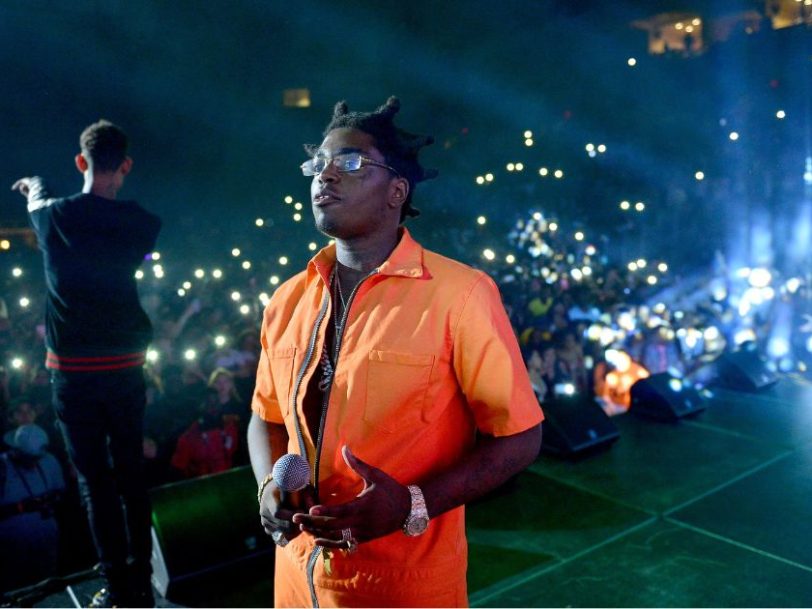By the time Kodak Black released his seventh mixtape, 2018’s Heart Break Kodak, he had already proven himself as a platinum-selling rapper capable of channelling the hair-raising events of his life into music that spoke to a generation of fans. Presented as a Valentine’s Day gift, Heart Break Kodak seemingly had less to do with the love god Cupid than it did the demons that plagued Kodak Black’s thoughts. Here’s what we hear in these snapshots from the edge of darkness.
Listen to ‘Heart Break Kodak’ here.
The backstory: A platinum-selling member of the SoundCloud rap generation
Florida’s Haitian-descended millennial loose cannon, the rapper Dieuson Octave, aka Kodak Black, began rapping at the age of 12, in between bouts of petty violence and theft. He started making an impact on the mixtape scene in 2013, before attracting attention from Drake, and a feature on French Montana’s double-platinum-selling Lockjaw helped make his name. By the time Atlantic Records released his 2018 mixtape, Heart Break Kodak, Black was part of the SoundCloud rap generation, alongside collaborators and contemporaries such as Travis Scott, Lil Uzi Vert, Lil Pump and Lil Yachty.
Black had already released his platinum-certified debut album, Painting Pictures, in 2017, and he was on the way to releasing another platinum-selling set, Dying To Live, by the end of the following year. Yet he still found time to throw out the 17-track, R&B-tinged Valentine’s Day special, Heart Break Kodak, complete with an image himself mocked up as Cupid on the sleeve – though how romantic the contents are is up for debate.
The songs: Free-flowing and joyously haphazard
Heart Break Kodak’s, gospel-infused opening song, Running Outta Love, exemplifies the free-flowing, joyously haphazard feel of the SoundCloud rap scene: the sound levels are variable, and Black backs himself, singjaying in and out of a delectable variety of vocal styles as he makes deft runs over a narcotic track from taste-making producers Frank Dukes and Murda Beatz. Black may not be noted for his emphasis on lyrics, but he often hits the emotional mark Heart Break Kodak: “I’ve been runnin’ out of feelings, I been speedin’ out of air,” he sings as he bursts from the traps.




